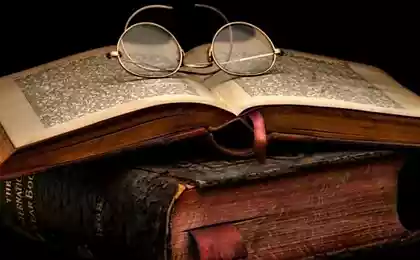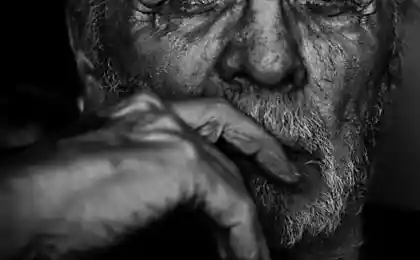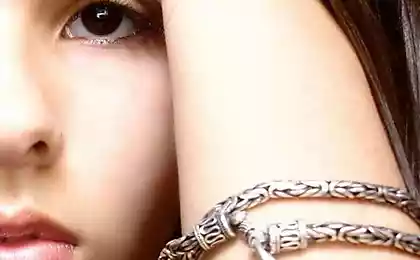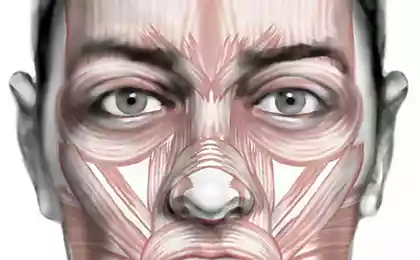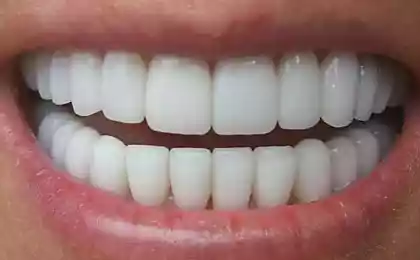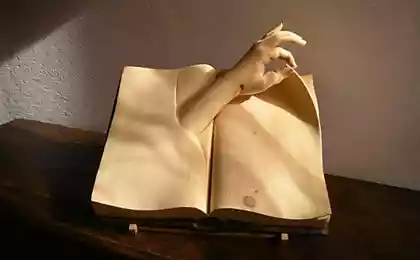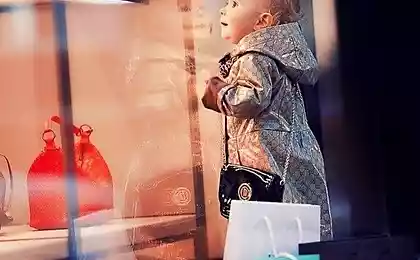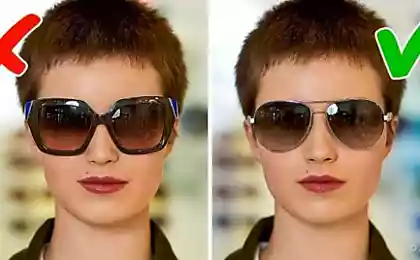219
Physiognomy - The Chinese Book of Wisdom
Physiognomy is the doctrine of the manifestations on the face of a person of the properties of his character and mood. As a method of prediction, it has been used in countries both East and West since ancient times.
The followers of Taoism in ancient China applied physiognomy in the Tao of Supremacy. They believed that a person’s instinctive premonition of future events, especially from the near future, is reflected in certain positions on his face. There are 108 of these.

SUBSTANCE
Physiognomy, in general, provides accurate orientation in determining a person's mood. We laugh or smile when we are happy or pleasantly surprised by something; we frown when we are angry or frightened. Moreover, a person’s face is reflected in attempts to hide his true mood, as, for example, in a poker player. In fact, it is very difficult for almost any person not to show his feelings on his face.
Eye and lip movements are the best indicators of a person’s mood. Widely open eyes indicate surprise, shrunken lips mean annoyance, a wide smile is a sign of pleasure.
Individuality
An honest face is an unclean heart. Proverb
The main character traits are inherited. But our character is formed under the influence of the environment and accumulated during life. For example, if we are constantly disturbed by something, sooner or later an angry and haunted expression will appear on our face, and possibly wrinkles that may remain forever. If we live easily and happily, the face acquires a kind, soft expression.
Nevertheless, appearances are sometimes deceptive, and in some people their appearance and speech generally create a misconception about the true nature.
Damn face.
Among the people there is a wonderful phenomenon:
In the diversity of millions of faces
No repeat.
Thomas Brown, Religion of the Medici (1642)
It seems like you really don’t meet two people, even twins, with exactly the same facial features. And if so, then, taking into account the assertion of the physiognomists that the features inherited by a person reflect his character, it turns out that there should not be two people with exactly the same character.
Facial traits and character traits, which they indicate, can be briefly described as follows:
sharp forehead - thoughtfulness
Low forehead - impulsivity
Sharply delineated middle face - endurance and common sense
Square chin - stubbornness and willfulness
Pointed chin - dissatisfaction
Oval chin - Artistry and loveability
Chin with dimple - sensuality
The value of physiognomy as a technique of prediction is quite limited, since it is still quite difficult to predict the fate of a person from one face. On the other hand, physiognomy allows you to accurately determine the character, and the character of a person can be judged with a high degree of certainty about his potential future. For example, it is reasonable to expect that a morose and unbred person will be less successful in life than a balanced and well-mannered one.
Human evaluation
Those who study physiognomy, assure that the face of a person can determine his character. But there's a question. Yes, expressions of anger, sadness, happiness, contempt or irritation can be easily read on a person’s face. And if this expression has become habitual, it can affect the character. But it is unlikely that the true character of a person can be judged by the shape of his chin or the size of his nose. Perhaps it would be more correct to say that the character of an individual determines his behavior.
Of course, a wise, judicious man does not always judge another by the expression of his face, which, as we know, is often deceptive. Such a person is not inclined to believe everything he hears. And this is also true, since often people are hypocritical and dishonest, others tend to misrepresent everything, but in any case pretend to be sincere. That is why it is said that one should “trust deeds more than words”, not always “believe one’s eyes”.
In this connection, the story of an alarmed father trying to give advice to his carefree son is instructive. Here's their dialogue:
Father: I am concerned about your comrade Wilfred. Why are you talking to him?
Son: Because he's my friend.
Father: Ask him to lend you £10, and you'll see that it's not.
Son: Oh, he's all right. He's his boyfriend. Everyone loves him.
Father: Brilliant plumage does not make a bird beautiful.
It is obvious that my father has accumulated a wealth of life experience and has become convinced that beautiful words are not always accompanied by beautiful actions. For example, a person with frequent outbursts of unreasonable anger is likely to be aggressive in nature and changeable in mood. But no one will make such a conclusion about a man calm, but suddenly angry at something. This person’s outburst of anger may simply be the result of a bad mood, hatred, or resentment. Some people are very good at hiding their true feelings.
Here are some examples of human behavior and the conclusions that can be drawn from this.
Observation: Li Cheng likes to drive fast in his fast and expensive car.
Li Cheng is rich and vain, and perhaps reckless and arrogant.
Observation: Mo Ti is intelligent, observant, hardworking and snakes a lot.
Conclusion: Mo Te expects success in all his endeavors.
Observation: Zheng Fon is pale, has no interest in anything and is nervous. She suffers from insomnia and lack of appetite.
Conclusion: Zheng Fong is sick or in love.
Observation: Zhang Di is aggressive, arrogant, boastful, ill-bred and lacks deep knowledge.
Conclusion: His only friend will be his mother.
Jang Zhu values his friends and always keeps his promises.
Conclusion: Jang Joo will always have friends.
A single act cannot serve as a basis for a correct assessment of a person’s character. To make judgments of this kind, one must have observation and a good understanding of complex human nature, the depths of which can only be grasped by exceptionally astute people.
P.S. And remember, just by changing your consciousness – together we change the world!
Source: /users/9160
The followers of Taoism in ancient China applied physiognomy in the Tao of Supremacy. They believed that a person’s instinctive premonition of future events, especially from the near future, is reflected in certain positions on his face. There are 108 of these.

SUBSTANCE
Physiognomy, in general, provides accurate orientation in determining a person's mood. We laugh or smile when we are happy or pleasantly surprised by something; we frown when we are angry or frightened. Moreover, a person’s face is reflected in attempts to hide his true mood, as, for example, in a poker player. In fact, it is very difficult for almost any person not to show his feelings on his face.
Eye and lip movements are the best indicators of a person’s mood. Widely open eyes indicate surprise, shrunken lips mean annoyance, a wide smile is a sign of pleasure.
Individuality
An honest face is an unclean heart. Proverb
The main character traits are inherited. But our character is formed under the influence of the environment and accumulated during life. For example, if we are constantly disturbed by something, sooner or later an angry and haunted expression will appear on our face, and possibly wrinkles that may remain forever. If we live easily and happily, the face acquires a kind, soft expression.
Nevertheless, appearances are sometimes deceptive, and in some people their appearance and speech generally create a misconception about the true nature.
Damn face.
Among the people there is a wonderful phenomenon:
In the diversity of millions of faces
No repeat.
Thomas Brown, Religion of the Medici (1642)
It seems like you really don’t meet two people, even twins, with exactly the same facial features. And if so, then, taking into account the assertion of the physiognomists that the features inherited by a person reflect his character, it turns out that there should not be two people with exactly the same character.
Facial traits and character traits, which they indicate, can be briefly described as follows:
sharp forehead - thoughtfulness
Low forehead - impulsivity
Sharply delineated middle face - endurance and common sense
Square chin - stubbornness and willfulness
Pointed chin - dissatisfaction
Oval chin - Artistry and loveability
Chin with dimple - sensuality
The value of physiognomy as a technique of prediction is quite limited, since it is still quite difficult to predict the fate of a person from one face. On the other hand, physiognomy allows you to accurately determine the character, and the character of a person can be judged with a high degree of certainty about his potential future. For example, it is reasonable to expect that a morose and unbred person will be less successful in life than a balanced and well-mannered one.
Human evaluation
Those who study physiognomy, assure that the face of a person can determine his character. But there's a question. Yes, expressions of anger, sadness, happiness, contempt or irritation can be easily read on a person’s face. And if this expression has become habitual, it can affect the character. But it is unlikely that the true character of a person can be judged by the shape of his chin or the size of his nose. Perhaps it would be more correct to say that the character of an individual determines his behavior.
Of course, a wise, judicious man does not always judge another by the expression of his face, which, as we know, is often deceptive. Such a person is not inclined to believe everything he hears. And this is also true, since often people are hypocritical and dishonest, others tend to misrepresent everything, but in any case pretend to be sincere. That is why it is said that one should “trust deeds more than words”, not always “believe one’s eyes”.
In this connection, the story of an alarmed father trying to give advice to his carefree son is instructive. Here's their dialogue:
Father: I am concerned about your comrade Wilfred. Why are you talking to him?
Son: Because he's my friend.
Father: Ask him to lend you £10, and you'll see that it's not.
Son: Oh, he's all right. He's his boyfriend. Everyone loves him.
Father: Brilliant plumage does not make a bird beautiful.
It is obvious that my father has accumulated a wealth of life experience and has become convinced that beautiful words are not always accompanied by beautiful actions. For example, a person with frequent outbursts of unreasonable anger is likely to be aggressive in nature and changeable in mood. But no one will make such a conclusion about a man calm, but suddenly angry at something. This person’s outburst of anger may simply be the result of a bad mood, hatred, or resentment. Some people are very good at hiding their true feelings.
Here are some examples of human behavior and the conclusions that can be drawn from this.
Observation: Li Cheng likes to drive fast in his fast and expensive car.
Li Cheng is rich and vain, and perhaps reckless and arrogant.
Observation: Mo Ti is intelligent, observant, hardworking and snakes a lot.
Conclusion: Mo Te expects success in all his endeavors.
Observation: Zheng Fon is pale, has no interest in anything and is nervous. She suffers from insomnia and lack of appetite.
Conclusion: Zheng Fong is sick or in love.
Observation: Zhang Di is aggressive, arrogant, boastful, ill-bred and lacks deep knowledge.
Conclusion: His only friend will be his mother.
Jang Zhu values his friends and always keeps his promises.
Conclusion: Jang Joo will always have friends.
A single act cannot serve as a basis for a correct assessment of a person’s character. To make judgments of this kind, one must have observation and a good understanding of complex human nature, the depths of which can only be grasped by exceptionally astute people.
P.S. And remember, just by changing your consciousness – together we change the world!
Source: /users/9160
A drone or when are we going to give robots morality?
France has officially banned the sale of Monsanto's roundup herbicide in plant nurseries


